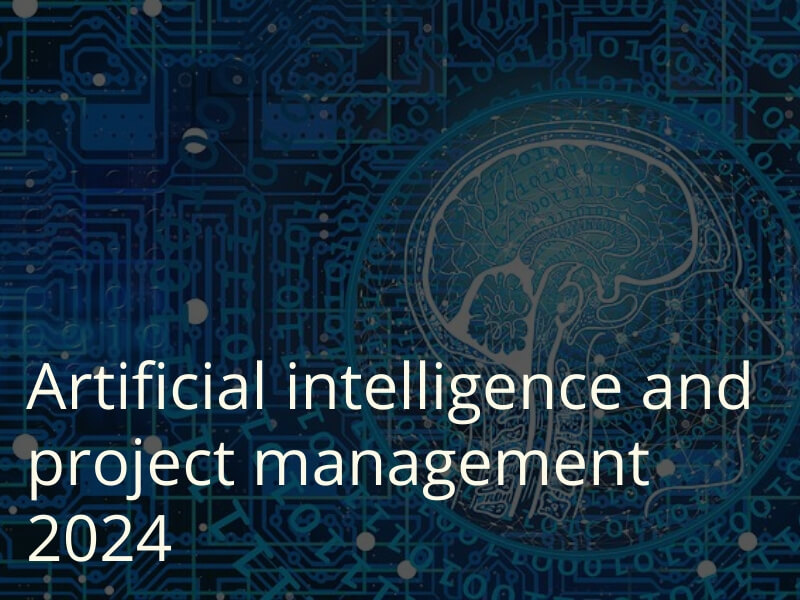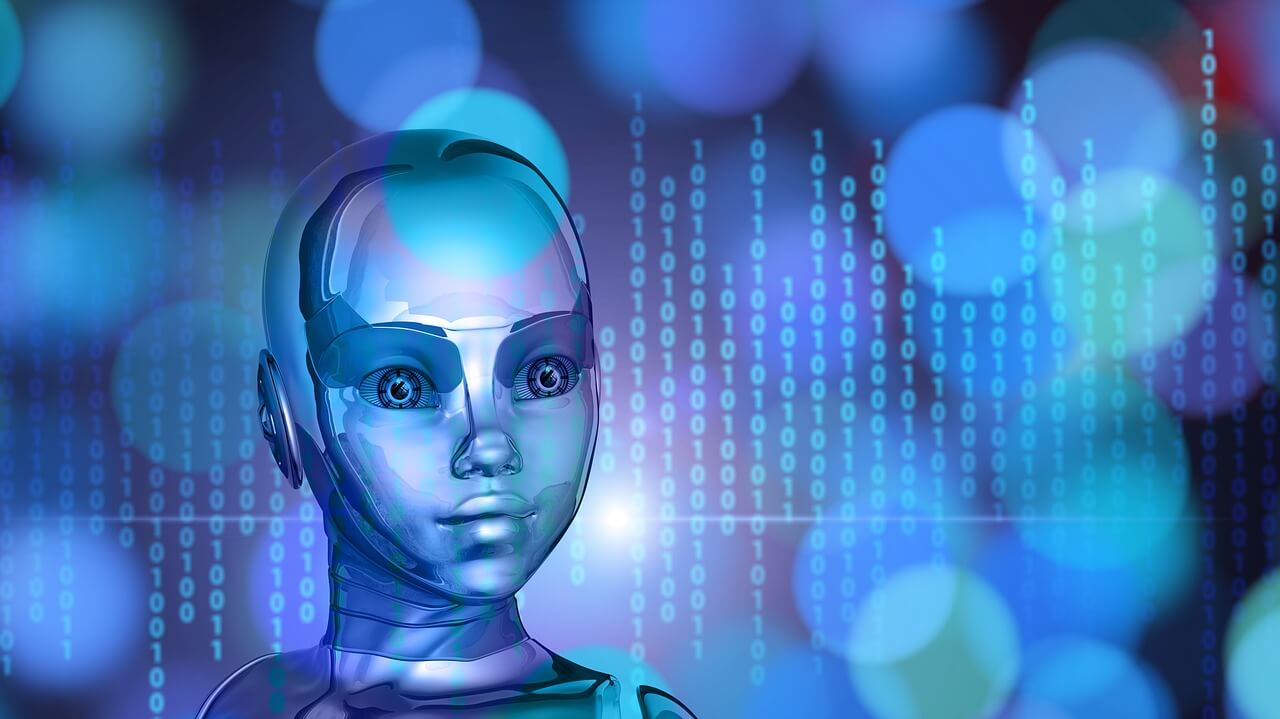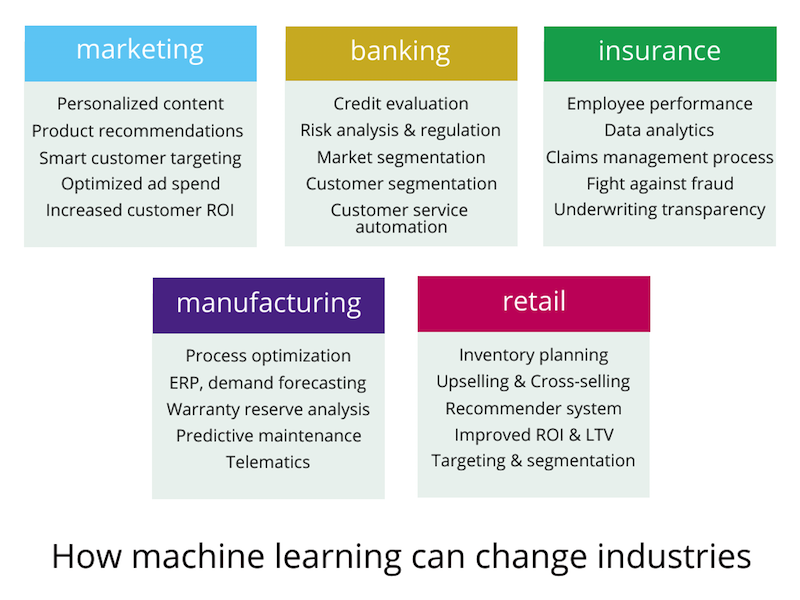3 Ways Artificial Intelligence can Improve Project Management by 2024

Today you just can’t avoid the buzz around artificial intelligence (AI) and machine learning (ML) and how these emerging technologies can improve project management in the next few years. Product leads, project managers, and other business professionals from healthcare, retail, banking, insurance, IT, and other industries talk a lot about the possible implications for their careers and what they can do to efficiently respond to the upcoming challenges behind AI and ML adoption. Let’s take a better look into what can happen to project management by 2024.
Artificial intelligence, basically
In my go-to guide 2019 for project managers I pointed out that artificial intelligence and machine learning should be considered a key trend that will be breaking into project management throughout the next few years. I can’t imagine a project manager who grows his or her career without having sufficient knowledge, skills and experience in AI techs.
But today many people still do not understand the basics: what artificial intelligence is and why machine learning is considered the core technique for AI-driven systems. So we first need to know these definitions and figure out what makes computers intelligent.
What is artificial intelligence?
AI is a branch of computer science about using special techniques and practices to create intelligent machines that can learn, think and act like human beings. AI uses data, servers and algorithms to train machines for specific actions such as recognizing objects, reasoning, problem solving, planning, perception.

Image by Gerd Altmann from Pixabay
Several examples of today’s AI:
- Apple Siri, a virtual intelligent assistant. Here the AI uses voice recognition and recommender engine to provide a solution based on what a user says.
- Facebook ads, an ad campaign management system. Facebook utilizes a bunch of AI marketing techs to offer one of the best customer targeting solutions for business. Predictive analytics, machine learning, content recognition, data mining, etc. are just a few techs that Facebook uses to build a powerful, AI-driven digital marketing system.
- Baidu Apollo, a self-driving car project. They employ various AI techniques to build an open source platform that allows for remote & auto car driving in city and countryside.
- 5 US-based startups that use artificial intelligence for managing marketing projects.
What is machine learning?
ML is a form of AI about designing algorithms and data structures for machines that analyze big data for finding patterns and making accurate predictions. An ML-powered computer does not need human-created programs or scripts to sort through large sets of data and forecast outcomes. In fact, machine learning allows computers to comprehend the surrounding world and adjust their actions accordingly step by step by using predictive analytics and advanced algorithms, without human interference.
Here are a few examples of how machine learning can be applied in various industries by 2024:

source: aimarketingspot.com
AI-powered project management by 2024
Around a decade ago, most of us were skeptical about the application of artificial intelligence just about everywhere in business and life. We thought that AI could only be used for doing repetitive tasks. We created scripts and programmed computers to do simple, routine activities. But with big data, the growing processing power and advanced algorithms, we now know that AI systems can be designed to perform complex tasks and that deep learning can make a computer think and act like a human.
There are at least 3 ways AI can improve project management within the next 5 years:
1. Less projects fail thanks to predictive analytics
Throughout its life-cycle, any project encounters a series of risks and uncertainties that can cause a failure. The team needs to regularly assess and respond to all the risks they identify based on their experience, knowledge and available tools. The challenge with the ongoing risk evaluation can turn into a disaster if the team fails to register new or inherent risks on-time, especially in big projects.
But what if you could use an intelligent, self-learning machine to analyze historical data, issue logs and incoming requests to come up with an improved rick rating system? Machine learning allows computers to use project data and sophisticated algorithms for predicting outcomes and identifying possibilities of threats and vulnerabilities affecting your project. ML can reduce the project failure rate, and you will see significant resources saved.
2. More accurate project planning with AI-enabled process automation
Generally speaking, project planning is about creating a detailed prediction of how to best use the available resources in terms of the project objectives and goals.
As a project manager, you have to re-estimate durations, costs and progress many times throughout the course of your project to make sure it is being performed as planned and to figure out what actions can be taken to make the project happen. The challenge here is that you may perform your estimations in haste and using conservative methods that lead to inflated costs or wrong durations.
As a recurring process, project planning can be optimized with machine learning. An AI-powered system could analyze historical data, productivity rates, time estimates, working hours etc. for patterns to come up with an optimized model of the project management process and automate repetitive tasks. Machine learning could allow for intelligent process automation where computers perform routine tasks. Humans would then do more critical tasks.
3. Project managers will bring in higher value
The job of a project manager is going to be changed, drastically. As said earlier, we expect to see repetitive tasks and routines automated, and project managers will dedicate more time to strategic and tactical thinking and judgement.
A project manager will focus on more value-adding tasks while delegating many project management tasks intelligent machines. For example, job assignment and scheduling will be handled by computers that will use data mining and predictive analytics to design accurate time lines and assign jobs to appropriate team members.
As more and more effective AI assistants reach most industries, project managers will heavily rely their decisions on intelligent machines or Artificial intelligence officers (AIOs) that will recommend what’s next, alert to vital events, automate time scheduling, and reply to incoming inquiries from superiors and staff.
Key takeaways
- By 2024, software development projects will be managed with the help of AI which will support planning, QA, optimization, architecture design and other stages of the development cycle. AI-driven systems will likely replace most lower-level roles and duties altogether.
- In the next few years, project managers will share their roles with an augmented assistant, e.g. an artificial intelligence officer that will provide recommendations and insights.
- Data analysts will delegate first-line analysis tasks to deep learning systems and focus on high-level architecture design and support. AI will be absorbed by most industries where project management is actively applied. Low-level roles and routine tasks will almost be effectively automated and handled by self-learning machines, while strategic decision making and judgement will require people more attention.
- The function of HR within project management will be improved with AI assistance. We can expect to see increased employee retention and engagement as AI will help HR managers recruit more competent and appropriate employees for specific project team roles and early identify signs of reducing job satisfaction.














